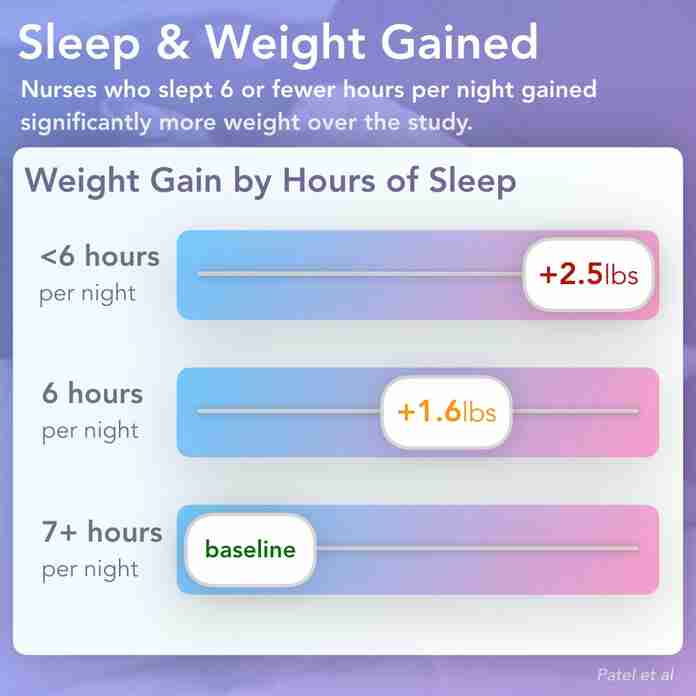The Surprising Connection Between Sleep Deprivation and Weight Gain: How to Manage Your Waistline

The Impact of Sleep Deprivation on Weight Gain
In today’s fast-paced world, sleep deprivation is a common issue that many individuals face. The fast-paced lifestyle, coupled with endless distractions, makes it challenging for people to get the recommended amount of sleep each night. However, most people are unaware of the substantial impact that sleep deprivation can have on their waistline. Multiple studies have indicated a robust link between insufficient sleep and weight gain. This article aims to explore the role of sleep in weight management and examine how lack of sleep affects metabolism and body weight.
The Role of Sleep in Weight Management
Maintaining a healthy weight is not just about following a balanced diet and exercising regularly. It turns out that sleep plays a crucial role in weight management. During sleep, the body performs essential functions that help regulate appetite and metabolism. When you don’t get enough sleep, these processes are disrupted, leading to an increased risk of weight gain.
How Lack of Sleep Affects Metabolism
One of the most significant ways in which sleep deprivation affects weight gain is by slowing down metabolism. Studies have shown that lack of sleep can decrease the calories the body burns at rest, known as the resting metabolic rate. This decrease in metabolic rate makes it more challenging for the body to burn calories efficiently, making it easier to gain weight.

In addition to slowing down metabolism, inadequate sleep can also disrupt hormone levels, especially those responsible for controlling appetite. This can lead to increased cravings for high-calorie, sugary foods, which can further contribute to weight gain. Therefore, getting enough sleep is essential for maintaining a healthy weight, as it helps regulate appetite and metabolism, leading to better weight management.
The Connection Between Sleep Quality and Body Weight
Getting enough high-quality sleep is crucial for maintaining a healthy body weight. Research has revealed that not only the quantity but also the quality of sleep can have a significant impact on your weight. Poor sleep quality is linked with a higher body mass index (BMI) and a greater likelihood of being overweight or obese. This is partially because inadequate sleep can disrupt the balance of hormones that regulate hunger, leading to increased hunger and overeating. Moreover, poor sleep can also lead to a lack of motivation to engage in physical activity, which can further contribute to weight gain.
Research on the Link Between Sleep Deprivation and Weight Gain
Several studies have investigated the connection between sleep deprivation and weight gain, and the results are consistent. For instance, one study showed that individuals who slept less than six hours per night were more likely to have a higher BMI than those who slept for seven to nine hours. Another study found that sleep deprivation was linked to an increased risk of developing obesity and metabolic syndrome. These findings underscore the importance of making sleep a priority for weight management.
Strategies to Improve Sleep for Weight Management
If you’re having trouble getting enough sleep, you may also be experiencing weight gain and other health issues. Fortunately, there are several effective strategies you can implement to improve your sleep quality and manage your waistline.
The Importance of a Consistent Sleep Schedule
One of the most important things you can do is establish a consistent sleep schedule. Going to bed and waking up at the same time every day, even on weekends, can help regulate your body’s internal clock and promote better sleep patterns. Avoiding naps during the day and creating a relaxing bedtime routine can also help signal to your body that it’s time to sleep.
Creating a Sleep-Friendly Environment
Your sleep environment also plays a crucial role in the quality of your sleep. To create a sleep-friendly environment, make sure your bedroom is cool, dark, and quiet. Investing in a comfortable mattress and pillows that provide adequate support can also make a big difference. Additionally, removing electronic devices, such as smartphones and televisions, from your bedroom can help reduce distractions and improve your sleep.

Tips for Improving Sleep Quality
There are several other tips you can follow to improve your sleep quality, such as avoiding caffeine and alcohol close to bedtime. These substances can disrupt your sleep and make it harder to fall asleep and stay asleep. Engaging in relaxation techniques, such as deep breathing or meditation, before bed can help calm your mind and promote better sleep. Regular exercise is also important for improving sleep quality, although it’s best to avoid intense exercise too close to bedtime as it can have a stimulating effect.
The Role of Stress and Sleep in Weight Gain
Sleep deprivation and weight gain are two common problems that can affect our health and well-being. Stress can be a significant factor that contributes to both of these issues. When we’re stressed, our body releases cortisol, a hormone that can interfere with our sleep cycle. Prolonged stress can lead to long-term sleep problems, which can eventually lead to weight gain. Therefore, it’s essential to find healthy ways to manage stress, such as practicing yoga or engaging in hobbies that we enjoy. These activities can help improve our sleep quality and prevent weight gain.
Taking Steps to Prioritize Sleep for a Healthier Weight
In conclusion, the connection between sleep deprivation and weight gain is undeniable. Lack of sleep can significantly impact your metabolism, appetite, and overall body weight. To manage your waistline effectively, it’s crucial to prioritize sleep and make it a priority in your daily routine. By establishing a consistent sleep schedule, creating a sleep-friendly environment, and managing stress, we can improve our sleep quality and take control of our weight.
Remember that a good night’s sleep is not only essential for our overall well-being but also for maintaining a healthy weight. Therefore, we should take steps to prioritize sleep in our daily routine.
FAQ
1. How does sleep deprivation contribute to weight gain?
Sleep deprivation disrupts the balance of hormones in the body that regulate appetite, such as leptin and ghrelin. This disruption can lead to an increase in appetite and a craving for high-calorie foods.
2. What is the recommended amount of sleep for maintaining a healthy weight?
For optimal health, including weight management, adults should aim for 7-9 hours of sleep per night. However, individual needs may vary.
3. What are some suggestions for improving sleep to support weight management?
Creating a relaxing bedtime routine, optimizing the sleeping environment with a comfortable mattress and a cool room temperature, limiting caffeine and screen time before bed, and managing stress levels are all good ways to improve sleep and promote weight management.
Also, read more about, The Science Behind Dreams: Exploring the Mysteries of the Sleeping Mind.
